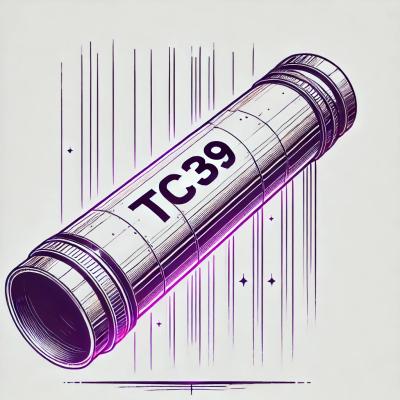
Security News
NVD Quietly Sweeps 100K+ CVEs Into a “Deferred” Black Hole
NVD now marks all pre-2018 CVEs as "Deferred," signaling it will no longer enrich older vulnerabilities, further eroding trust in its data.
Squire.js is a dependency injector for Require.js users to make mocking dependencies easy!
Squire.js is a dependency injector for Require.js users to make mocking dependencies easy!

bower install squire
npm install squirejs
First you have to load Squire in, just like any other Require.js module. Beyond this example the rest of the documentation will assume you already loaded Squire as a module dependency.
define(['Squire'], function(Squire) {
var injector = new Squire();
});
var injector = new Squire('other-requirejs-context');
var injector = new Squire();
injector.require(['utilities/Calculator'], function(Calculator) {
// Calculator has been loaded.
},
function(err) {
// Calculator threw an error loading.
});
The mock method lets you pass in mocks to be used for a given modules dependency. The first argument is the module name, the second argument is the mock itself. For multiple mocks you can pass an object, the objects key will be the path and the corresponding value will be used as the mock.
var injector = new Squire();
// Key value mocking.
injector.mock(dependencyName, mockForDependency);
// You can pass an object literal as well.
injector.mock(dependencyNameAndMock);
var injector = new Squire();
injector.mock('CrazyCalculatorDependency', {
sin: 10
})
.require(['utilities/Calculator'], function(Calculator) {
// The Calculators dependency 'CrazyCalculatorDependency' has been mocked to
// use the object literal { sin: 10 } that we passed in.
});
The store method allows you to get a pointer back to a dependency so you can stub it.
var injector = new Squire();
injector
.store('CrazyCalculatorDependency')
.require(['utilities/Calculator', 'mocks'], function(Calculator, mocks) {
// mocks.store.CrazyCalculatorDependency is the Calculators dependency, you can
// manipulate it or stub it with Sinon now.
});
The clean method allows you to remove mocks by name from your Squire instance, or remove all mocks.
var injector = new Squire();
injector.mock('something', { other: 'mock'});
// You do stuff but want to be able to get the real 'something' now.
injector.clean('something');
// Or a collection of mocks
injector.clean(['something', 'something/else']);
Or clean out all the mocks stored in a Squire instance.
injector.clean();
Remove all the dependencies loaded by this instance of Squire.
injector.remove();
Run generates a function that will receive a done callback and execute it after your test function is complete. Particularly useful for frameworks where asynchrony is handled with a callback. Here is an example with Mocha.js. Jasmine can offer this callback approach using Jasmin.Async.
it('should execute this test using run', injector.run(['mocks/Shirt'], function(Shirt) {
Shirt.color.should.equal('Red');
}));
Squire.js offers a few helper functions to ease pains associated with mocking and testing AMD modules.
Create a mock that returns mockViewInstance
injector.mock('Views/AwesomeView', Squire.Helpers.returns(mockViewInstance));
Often times AMD modules return constructor functions which means that mocking such a class would end up having to create a function that returns a function that returns your mocked instance. Squire.js eases that pain by wrapping up your instance for you.
injector.mock('Views/AwesomeView', Squire.Helpers.constructs(mockViewInstance));
Now any module that uses Views/AwesomeView as a constructor dependency will use get your mock instead:
// when invoked with in an Squire.injector.require call
var awesome = new AwesomeView(); // awesome now gets your mockViewInstance
Illustration by Adam Christiansen
FAQs
Squire.js is a dependency injector for Require.js users to make mocking dependencies easy!
The npm package squirejs receives a total of 5,950 weekly downloads. As such, squirejs popularity was classified as popular.
We found that squirejs demonstrated a not healthy version release cadence and project activity because the last version was released a year ago. It has 1 open source maintainer collaborating on the project.
Did you know?

Socket for GitHub automatically highlights issues in each pull request and monitors the health of all your open source dependencies. Discover the contents of your packages and block harmful activity before you install or update your dependencies.

Security News
NVD now marks all pre-2018 CVEs as "Deferred," signaling it will no longer enrich older vulnerabilities, further eroding trust in its data.

Research
Security News
Lazarus-linked threat actors expand their npm malware campaign with new RAT loaders, hex obfuscation, and over 5,600 downloads across 11 packages.

Security News
Safari 18.4 adds support for Iterator Helpers and two other TC39 JavaScript features, bringing full cross-browser coverage to key parts of the ECMAScript spec.